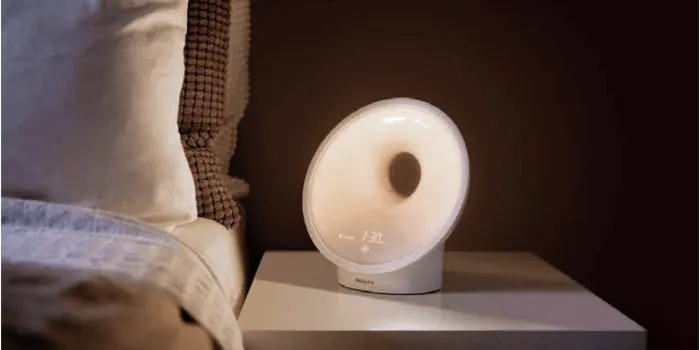Does this scenario sound familiar? It’s late and you should be going to bed, but you have a few more e-mails to read or social media posts to catch up on. So you grab your smartphone, tablet or laptop and scroll away before turning in.
It might sound like a harmless habit, but the intrusion of technological devices into our bedrooms is taking a toll on our sleep quality, which in turn, studies show, increases our risk for several health problems.
Reasons why you need a good night’s rest
Alongside other pillars of good health like proper nutrition and exercise, sleep is critical to one’s overall well-being. And for people with bleeding disorders, too little sleep is of particular concern.
“Living with a chronic illness means you really need to take care of fundamentals, like sleep,” says Kerry Hansen, RN, a nurse clinician at the Center for Bleeding and Clotting Disorders at the University of Minnesota and a member of the National Hemophilia Foundation’s (NHF) Nursing Working Group.
The Centers for Disease Control and Prevention recommends adults get at least seven hours of slumber nightly. But a 2016 CDC study found 1 in 3 Americans fail to regularly hit that mark, putting them at greater risk for chronic conditions including diabetes, heart disease, anxiety and depression.
There are also specific reasons why it’s good for people with bleeding disorders to mind their sleep hygiene.
“Getting too little sleep can cause you to gain weight, which puts more stress on weight-bearing joints,” Hansen says. “And considering that joint bleeds are the most common type of bleed in hemophilia, keeping weight under control is important.” Hansen also notes that sleep-deprived people are more prone to accidents and falls, and there’s a strong link between sleep deprivation and anxiety and depression, especially in people with chronic health issues. “Depression among people with bleeding disorders is higher than the average population,” Hansen says. “Something as simple as sleep can really help all these different issues.”
Sleep thieves
You probably know that consuming caffeine later in the day, eating a large meal near bedtime and drinking alcohol can disturb sleep quality. But that habit of using your smartphone or tablet before hitting the hay is also a problem. According to research, such activity affects sleep in two ways:
First, device screens emit blue light wavelengths that mimic daylight. Such light tricks your body into thinking it shouldn’t be ready for bed and it suppresses release of the sleep-signaling hormone melatonin.
“Melatonin is a biological marker of when you’re going to get sleepy,” says Brett Kuhn, PhD, a psychologist and certified behavioral sleep medicine specialist at the Munroe-Meyer Institute for Genetics & Rehabilitation and University of Nebraska Medical Center. “Anytime that you’re getting nighttime blue light exposure it’s going to delay your melatonin onset and delay the time that you fall asleep.”
Second, smartphones and tablets are incredibly engaging and keep the mind buzzing, making it difficult to put them down. “This second issue is the bigger issue,” Kuhn says. “It’s a very stimulating, interesting activity that is preventing us from going to bed when we’re tired.”
Take back the bedroom
As hard as it might be to put away your devices and disconnect, doing so is crucial to a good night’s rest. “Between 30 and 60 minutes before bed, you have to get away from technology and go through a bedtime routine,” Kuhn says.
Along with setting a device curfew, that routine should include ensuring your bedroom is quiet, dark, cool and relaxing. “Try to create a peaceful environment,” advises Cynthia Nichols, PhD, a board-certified sleep specialist at Munson Medical Center in Traverse City, Michigan. “You don’t have to spend three hours getting ready for bed, but try to protect that half hour or so before going to sleep to give yourself time to wind down.”
3 ways tech can improve sleep and help you get more rest
While looking at device screens near bedtime is a no-no, not all technology disrupts slumber. The following devices may help you snooze better:
Phototherapy light
• A light therapy device, typically used in the morning, helps regulate the body’s sleep rhythm, which helps you sleep deeper. There are light boxes you sit in front of and wearable devices such as a visor or special glasses that beam light gently into the eyes.
White noise machines
• These small, inexpensive devices provide soothing, steady background noise that can drown out a partner’s snoring or other sounds that might disrupt sleep. A fan can provide a similar effect.
Dawn simulators
• For people who prefer to be roused from their slumber more slowly, these bedside table lights are an alternative to a jarring alarm. The light gradually illuminates your bedroom as if you’re waking up with the sunrise.
Note: Sleep specialist Cynthia Nichols, PhD, says a light therapy device should deliver a minimum of 10,000 lux at whatever distance the product recommends you sit from it.
Tips on better sleep
• A Good Night’s Sleep (National Institute on Aging)
• Brain Basics: Understanding Sleep (National Institute of Neurological Disorders and Stroke)
• 5 Things To Know About Sleep Disorders and Complementary Health Approaches (National Center for Complementary and Integrative Health)

